Better Addiction Care Blogs
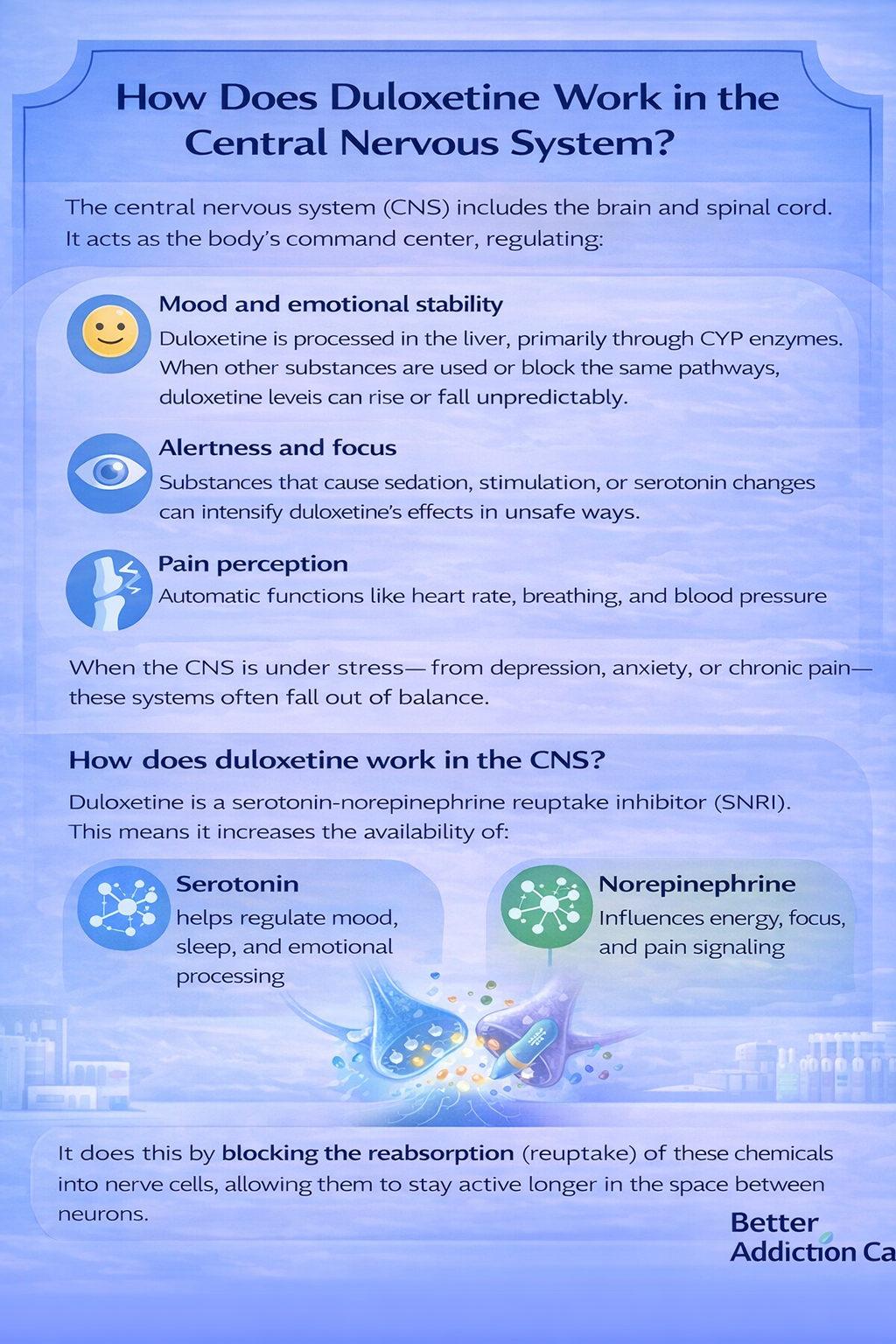 @esle
@esle

Alcohol is one of the most common and underestimated risks for people taking duloxetine.
Both substances affect the CNS, but in different directions. Duloxetine stabilizes neurotransmitter signaling, while alcohol disrupts it. When combined, the result can feel unpredictable — sometimes numbing, sometimes overwhelming.
Alcohol is one of the most common and underestimated risks for people taking duloxetine.
Both substances affect the CNS, but in different directions. Duloxetine stabilizes neurotransmitter signaling, while alcohol disrupts it. When combined, the result can feel unpredictable — sometimes numbing, sometimes overwhelming.
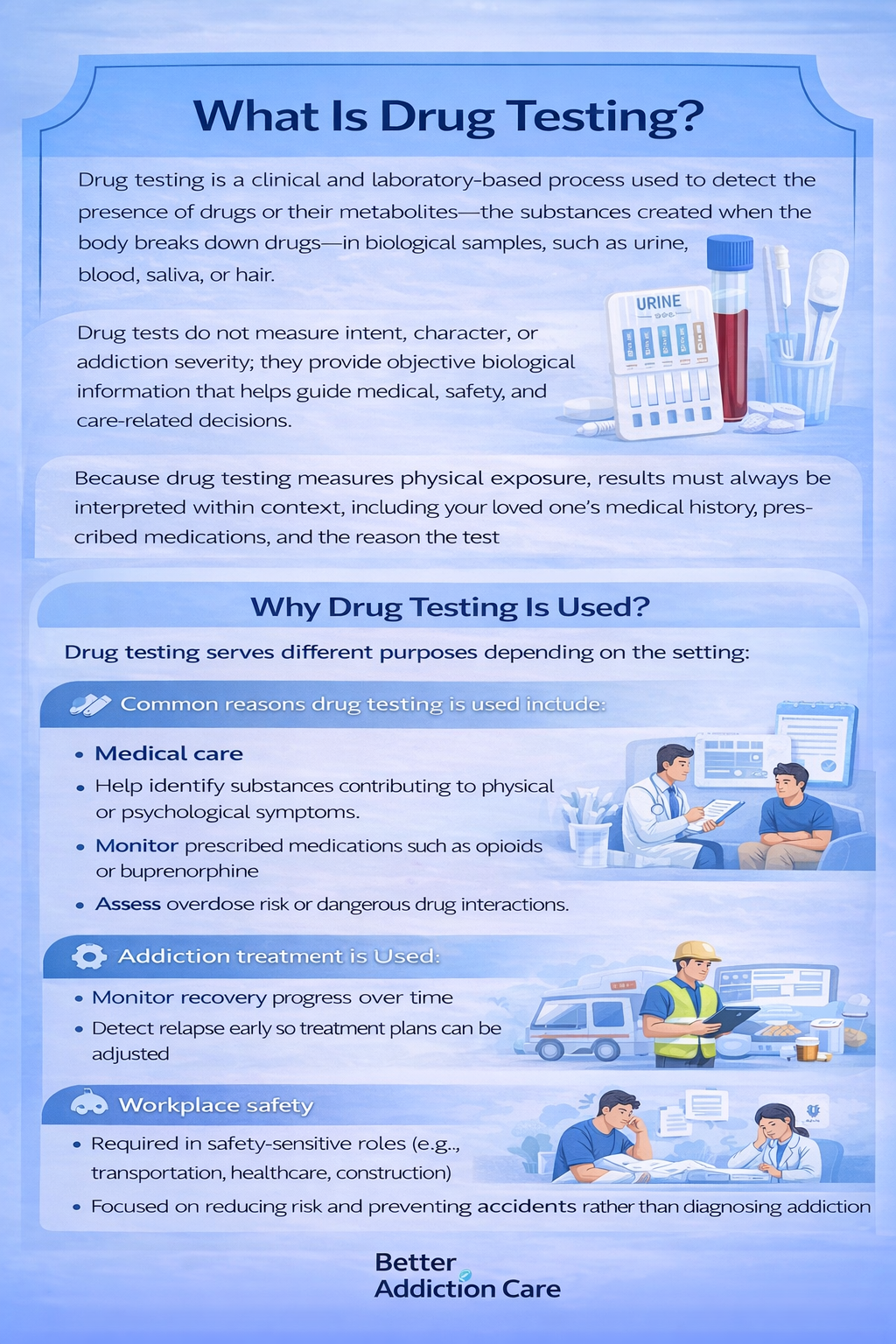
Drug testing is often encountered during moments of stress—when a loved one is entering treatment, facing legal or workplace requirements, or when families are searching for clarity after concerning behavior.
Understanding how drug testing works, what different tests detect, and how long substances remain detectable can help families respond calmly, protect health and safety, and make informed care decisions.
Drug testing is often encountered during moments of stress—when a loved one is entering treatment, facing legal or workplace requirements, or when families are searching for clarity after concerning behavior.
Understanding how drug testing works, what different tests detect, and how long substances remain detectable can help families respond calmly, protect health and safety, and make informed care decisions.
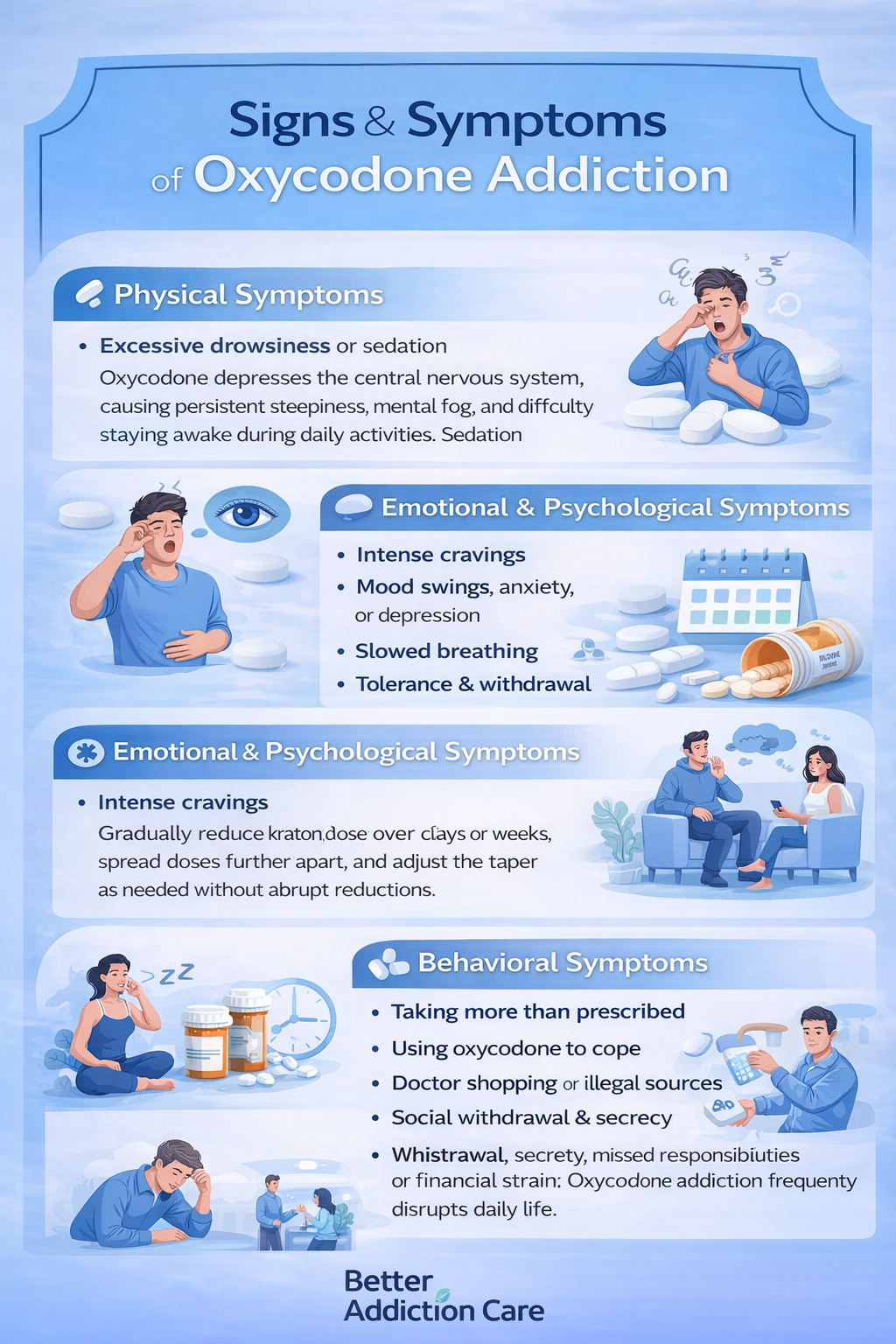
Oxycodone is a semi-synthetic opioid analgesic used to treat moderate to severe pain. It works by binding to opioid receptors in the central nervous system, reducing pain perception and activating reward pathways. [1]
Oxycodone is a semi-synthetic opioid analgesic used to treat moderate to severe pain. It works by binding to opioid receptors in the central nervous system, reducing pain perception and activating reward pathways. [1]
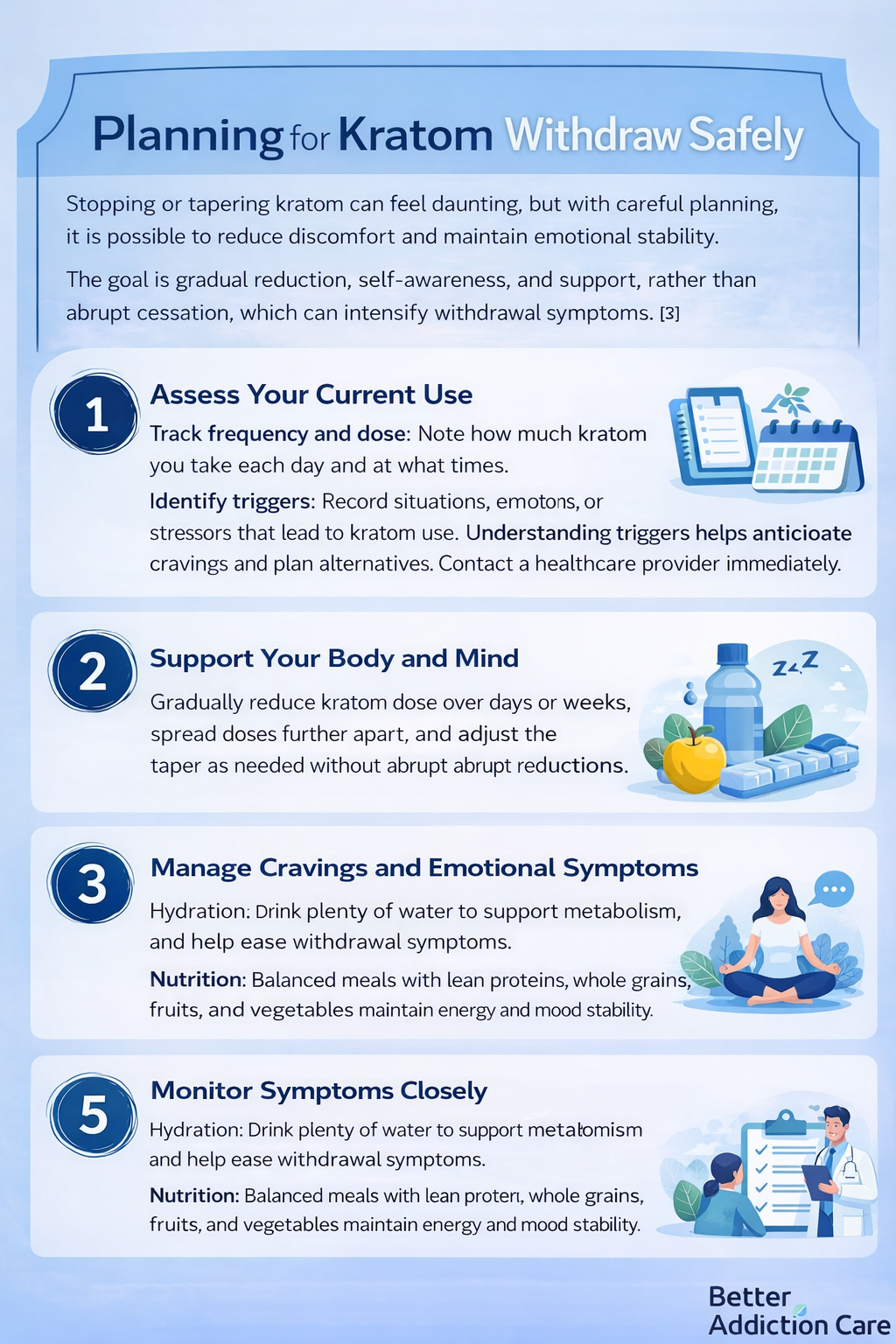 @esle
@esle

The primary differences between kratom strains come from leaf vein color (red, green, or white), along with variations in alkaloid content, leaf maturity, and processing methods.
These factors influence how each strain tends to affect energy levels, mood, and physical sensations.
While all kratom comes from the same plant species, these differences can lead to noticeably different user experiences.
The primary differences between kratom strains come from leaf vein color (red, green, or white), along with variations in alkaloid content, leaf maturity, and processing methods.
These factors influence how each strain tends to affect energy levels, mood, and physical sensations.
While all kratom comes from the same plant species, these differences can lead to noticeably different user experiences.
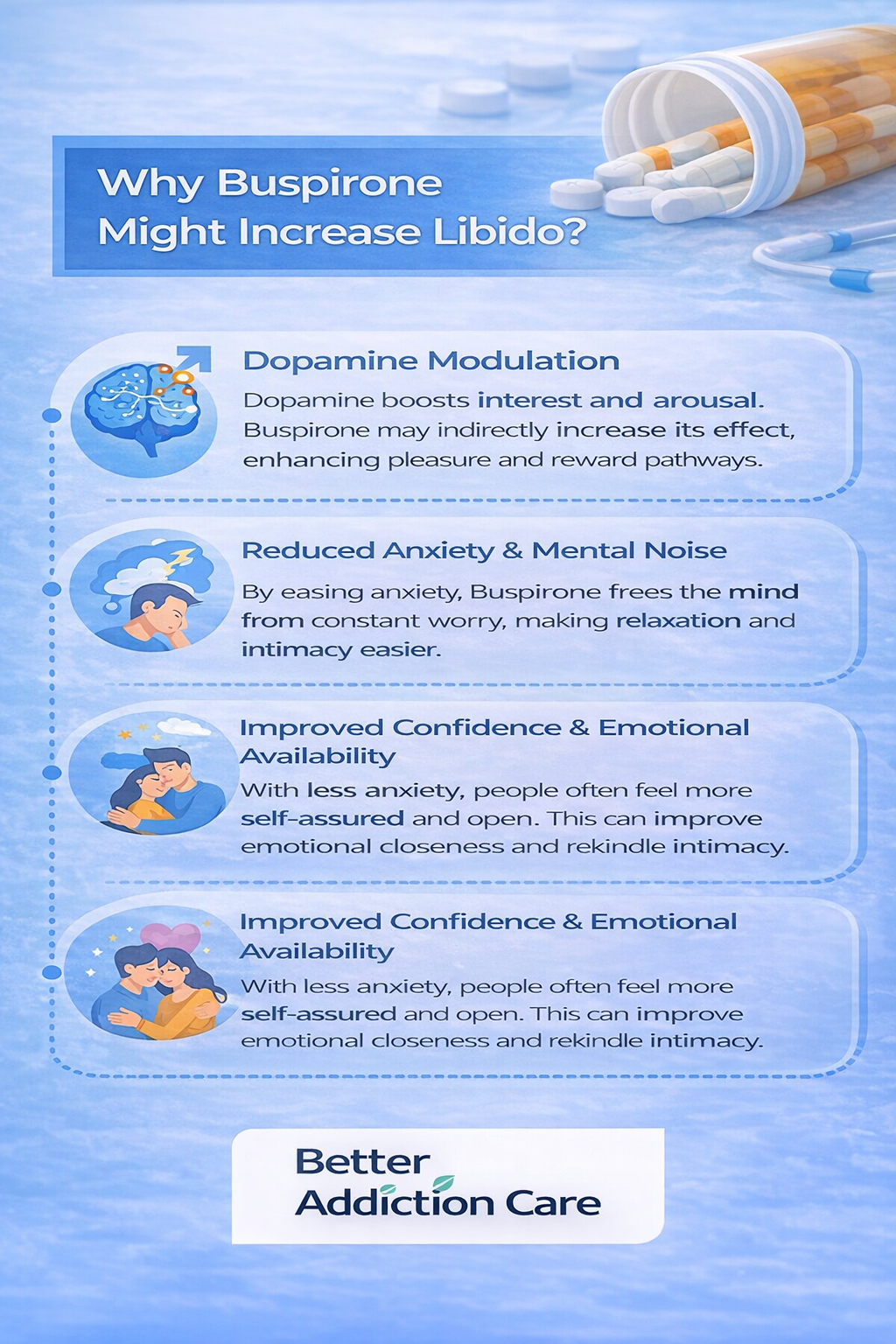 @esle
@esle

Some individuals notice changes in their sex drive after starting buspirone—either an increase, a decrease, or subtle shifts in desire or intimacy. These experiences can feel confusing or even distressing, especially during recovery when emotional balance matters deeply.
The reassuring reality is that sexual side effects with buspirone are generally mild, variable, and manageable.
Open, honest communication with healthcare providers can make a meaningful difference in both comfort and outcomes.
Some individuals notice changes in their sex drive after starting buspirone—either an increase, a decrease, or subtle shifts in desire or intimacy. These experiences can feel confusing or even distressing, especially during recovery when emotional balance matters deeply.
The reassuring reality is that sexual side effects with buspirone are generally mild, variable, and manageable.
Open, honest communication with healthcare providers can make a meaningful difference in both comfort and outcomes.
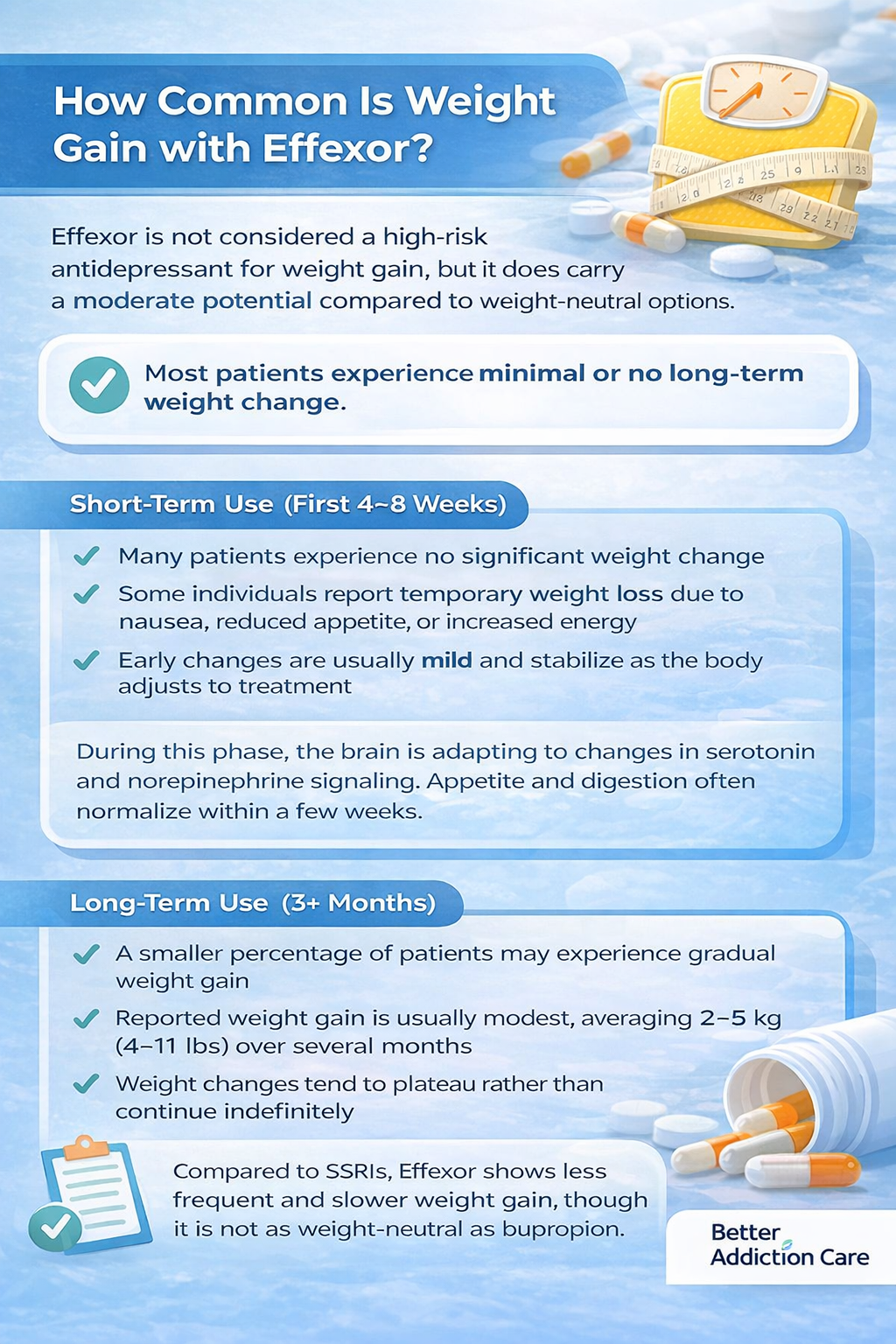 @esle
@esle

Effexor functions by blocking the reabsorption (reuptake) of serotonin and norepinephrine in the brain.
This increases their availability in synaptic spaces, helping improve mood, reduce anxiety, and enhance overall emotional balance.
However, these same neurotransmitters are also involved in hunger signals, satiety, and energy expenditure.
Effexor functions by blocking the reabsorption (reuptake) of serotonin and norepinephrine in the brain.
This increases their availability in synaptic spaces, helping improve mood, reduce anxiety, and enhance overall emotional balance.
However, these same neurotransmitters are also involved in hunger signals, satiety, and energy expenditure.
 @esle
@esle

Effexor functions by blocking the reabsorption (reuptake) of serotonin and norepinephrine in the brain.
This increases their availability in synaptic spaces, helping improve mood, reduce anxiety, and enhance overall emotional balance.
However, these same neurotransmitters are also involved in hunger signals, satiety, and energy expenditure.
Effexor functions by blocking the reabsorption (reuptake) of serotonin and norepinephrine in the brain.
This increases their availability in synaptic spaces, helping improve mood, reduce anxiety, and enhance overall emotional balance.
However, these same neurotransmitters are also involved in hunger signals, satiety, and energy expenditure.
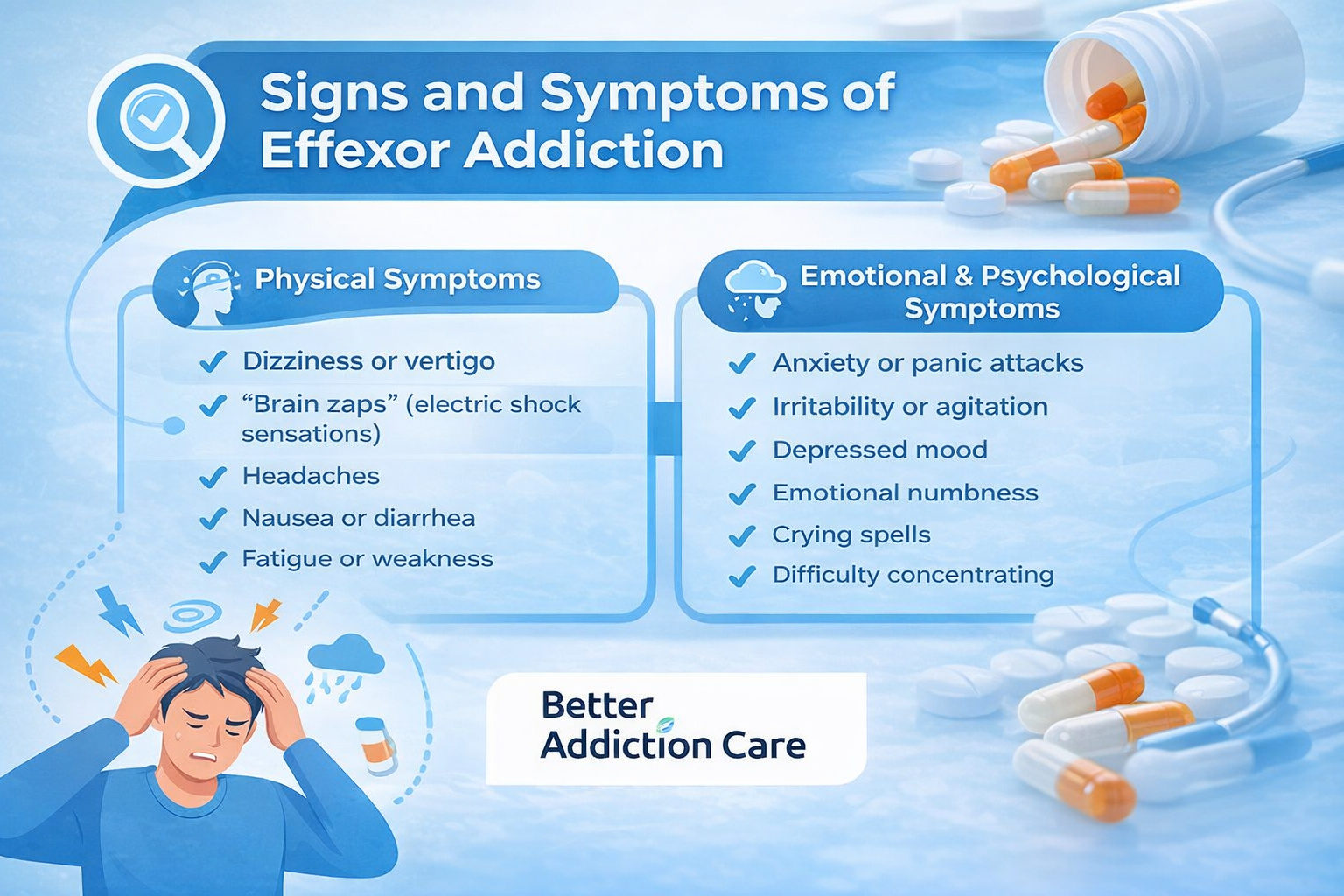
Venlafaxine, commonly known by the brand name Effexor, is a prescription antidepressant belonging to a class called serotonin–norepinephrine reuptake inhibitors (SNRIs).
Venlafaxine, commonly known by the brand name Effexor, is a prescription antidepressant belonging to a class called serotonin–norepinephrine reuptake inhibitors (SNRIs).
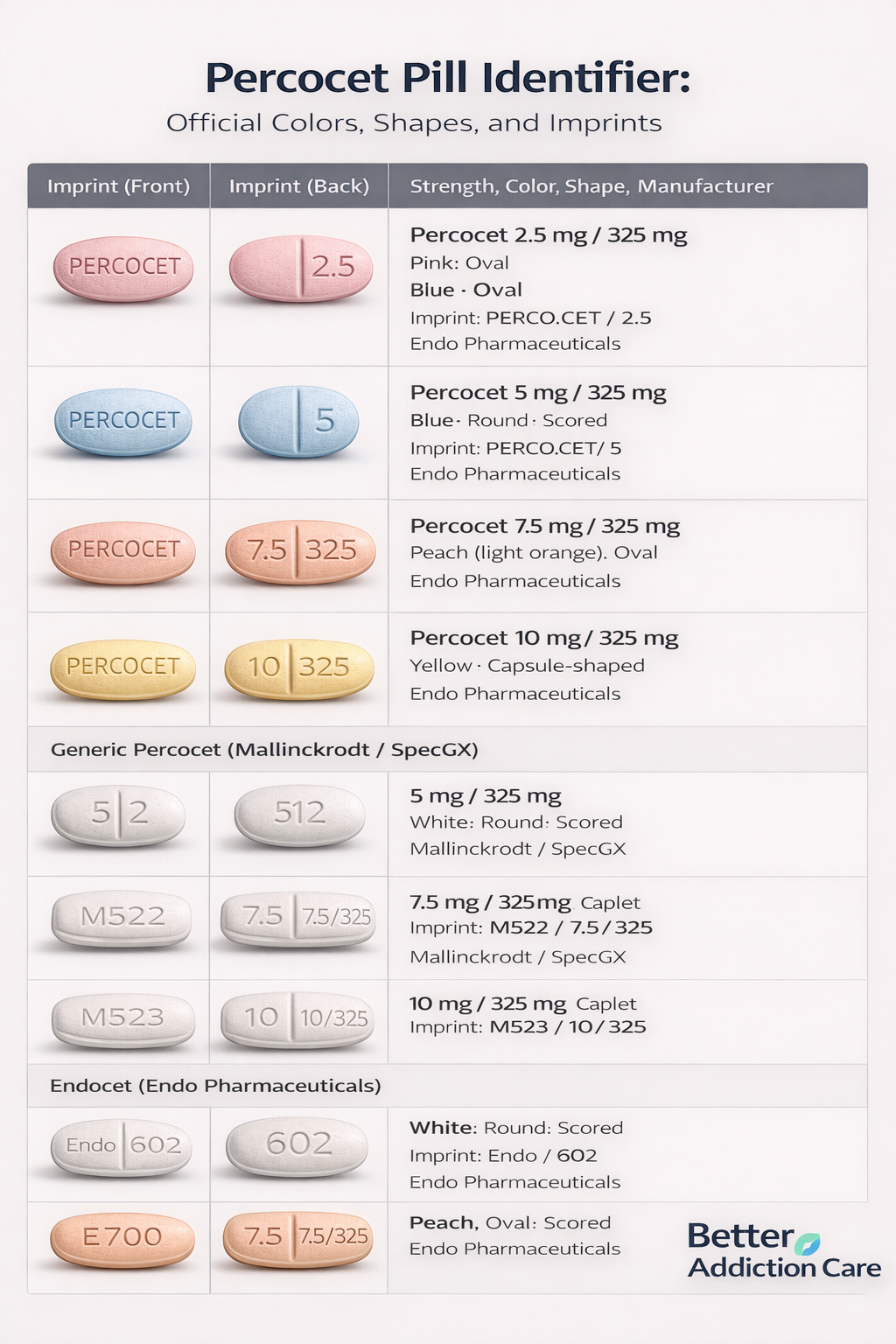 @esle
@esle

The safest way to identify a Percocet tablet is by checking four key features of the pill: color, shape, imprint code and scoring.
The safest way to identify a Percocet tablet is by checking four key features of the pill: color, shape, imprint code and scoring.
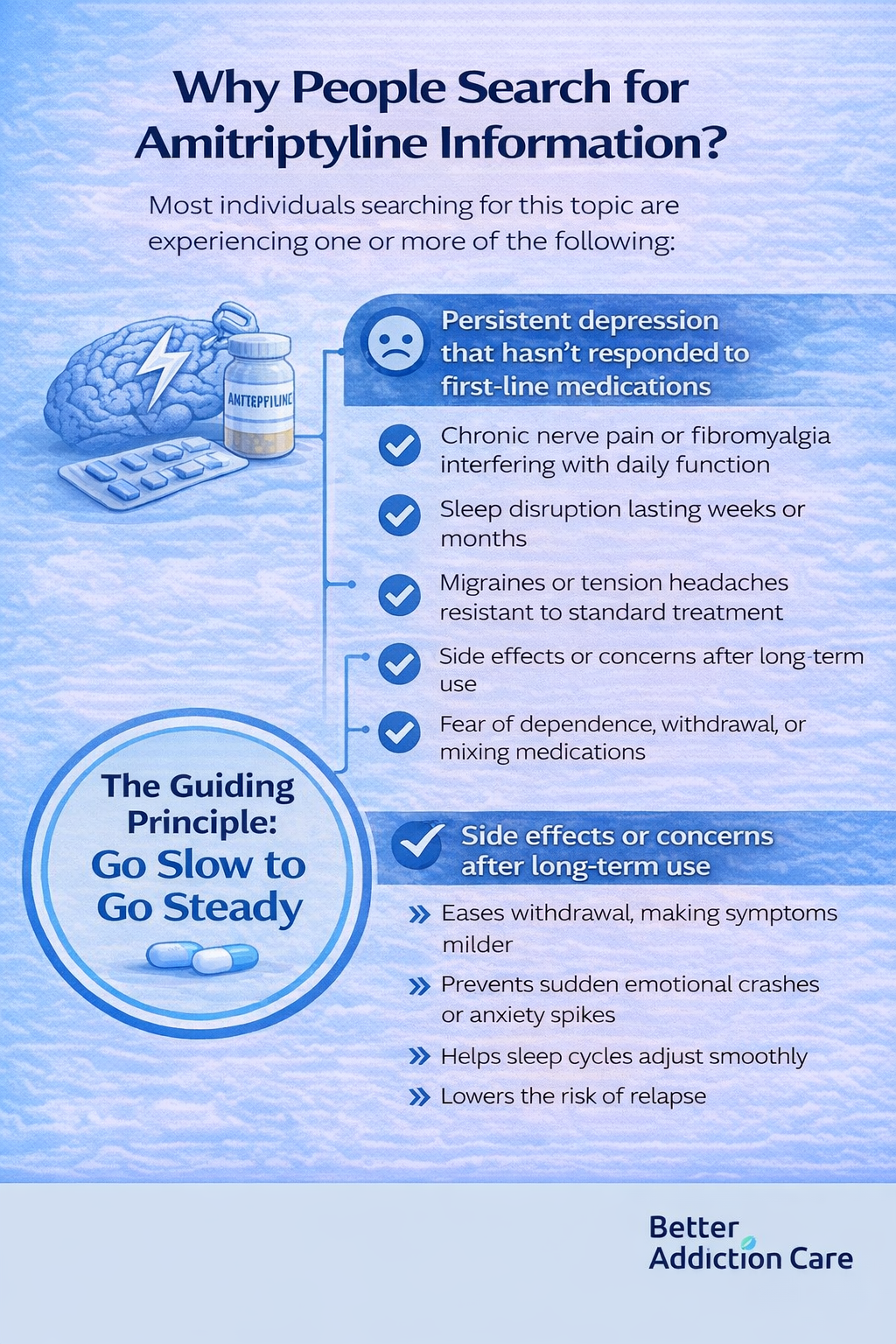
Amitriptyline hydrochloride (HCl) is a prescription medication classified as a tricyclic antidepressant (TCA). TCAs were among the first antidepressants developed and are still widely used today—not only for depression, but for chronic pain, migraine prevention, insomnia, and certain anxiety-related conditions.
Amitriptyline hydrochloride (HCl) is a prescription medication classified as a tricyclic antidepressant (TCA). TCAs were among the first antidepressants developed and are still widely used today—not only for depression, but for chronic pain, migraine prevention, insomnia, and certain anxiety-related conditions.
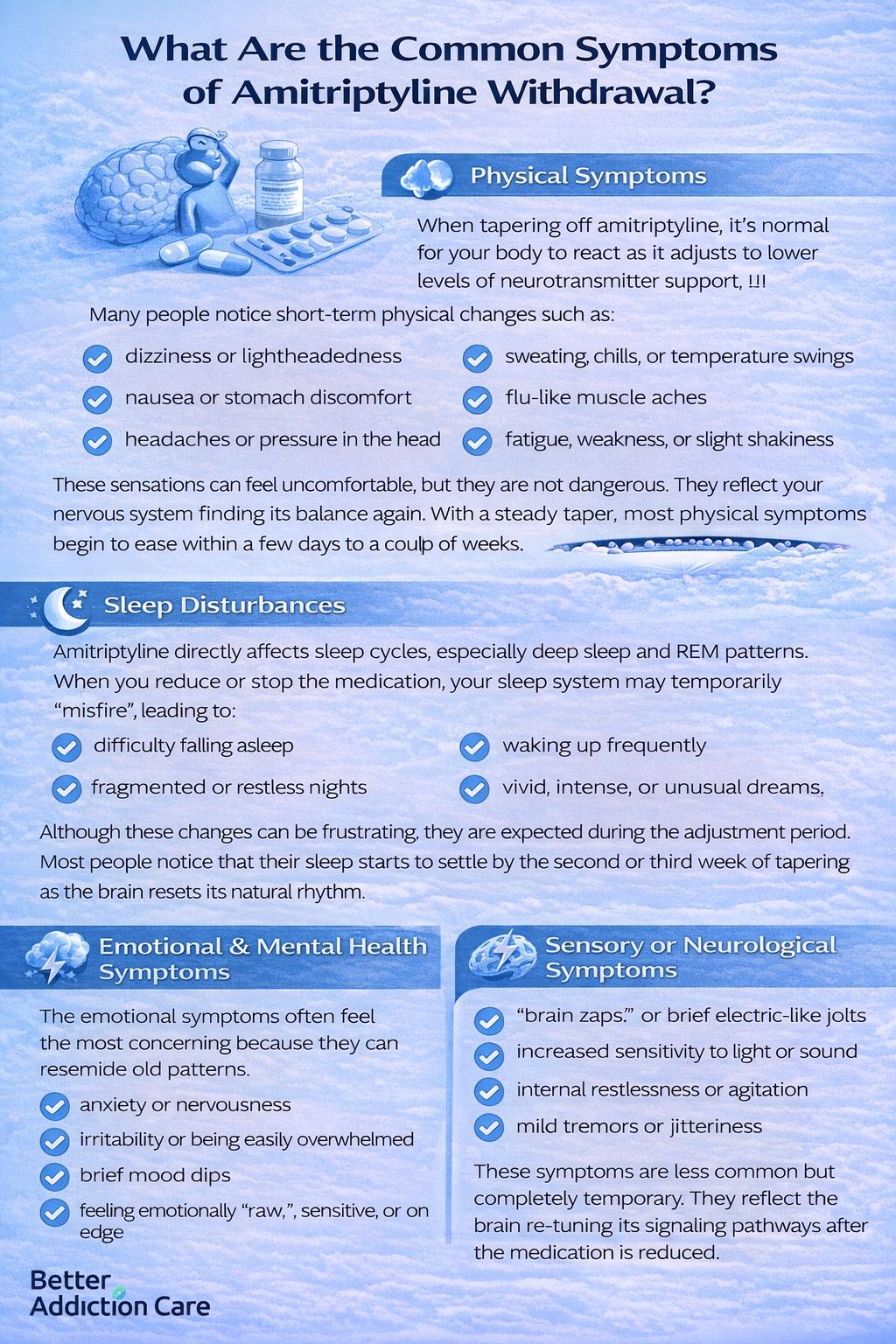 @esle
@esle

Stopping amitriptyline abruptly can trigger withdrawal because the brain loses a source of chemical support too quickly. The nervous system, which has been relying on the medicine’s steady influence, suddenly has to recalibrate.
Stopping amitriptyline abruptly can trigger withdrawal because the brain loses a source of chemical support too quickly. The nervous system, which has been relying on the medicine’s steady influence, suddenly has to recalibrate.
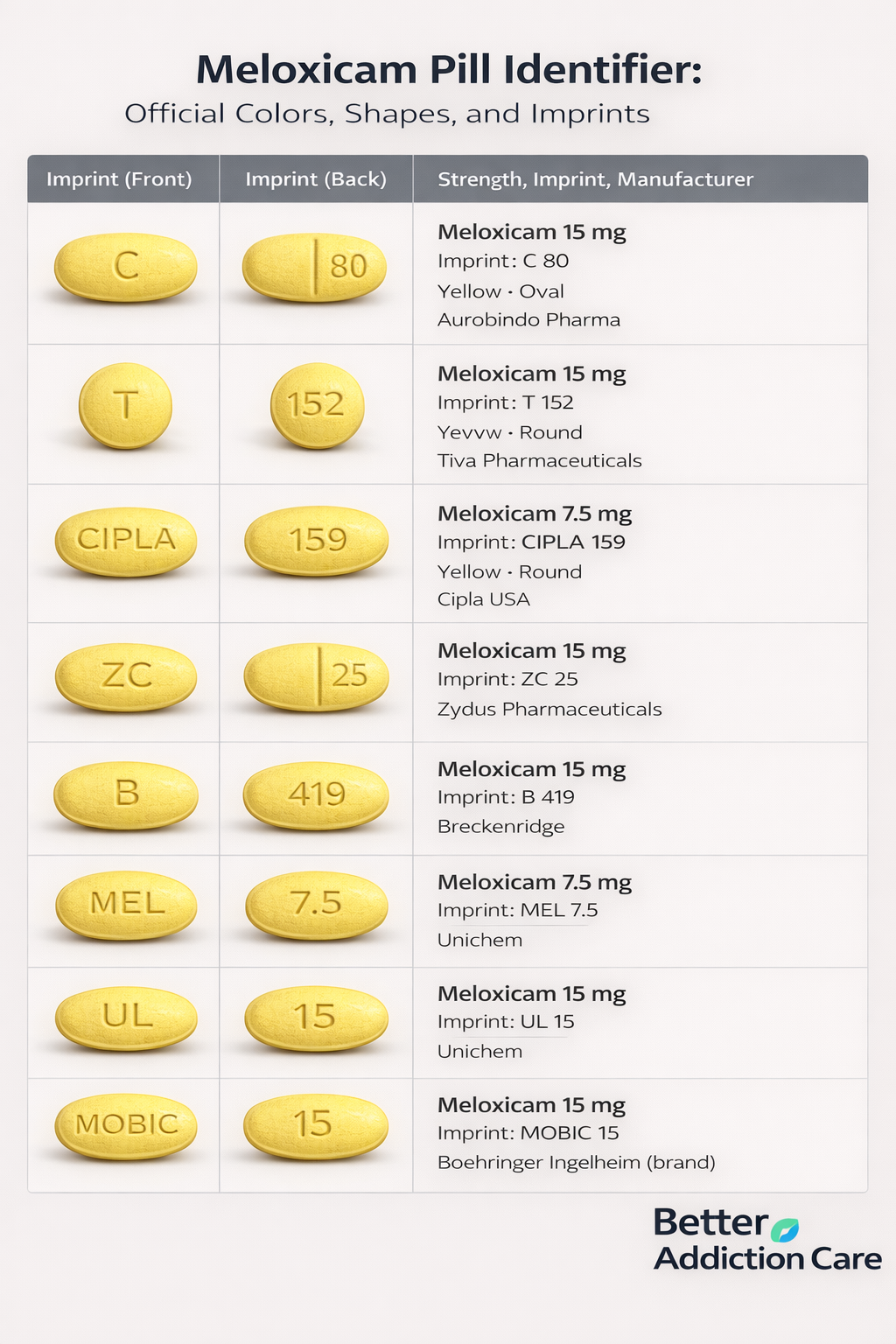 @esle
@esle

Meloxicam (generic: meloxicam) is a nonsteroidal anti-inflammatory drug (NSAID) prescribed to relieve pain and inflammation caused by arthritis, including osteoarthritis, rheumatoid arthritis, and juvenile rheumatoid arthritis.
Both brand and generic tablets contain the same active ingredient. For example, DailyMed (NIH) notes that “Each pastel yellow Meloxicam tablet USP contains 7.5 mg or 15 mg meloxicam”, and regardless of the manufacturer, meloxicam tablets are usually a light yellow color and available in two strengths.
Meloxicam (generic: meloxicam) is a nonsteroidal anti-inflammatory drug (NSAID) prescribed to relieve pain and inflammation caused by arthritis, including osteoarthritis, rheumatoid arthritis, and juvenile rheumatoid arthritis.
Both brand and generic tablets contain the same active ingredient. For example, DailyMed (NIH) notes that “Each pastel yellow Meloxicam tablet USP contains 7.5 mg or 15 mg meloxicam”, and regardless of the manufacturer, meloxicam tablets are usually a light yellow color and available in two strengths.
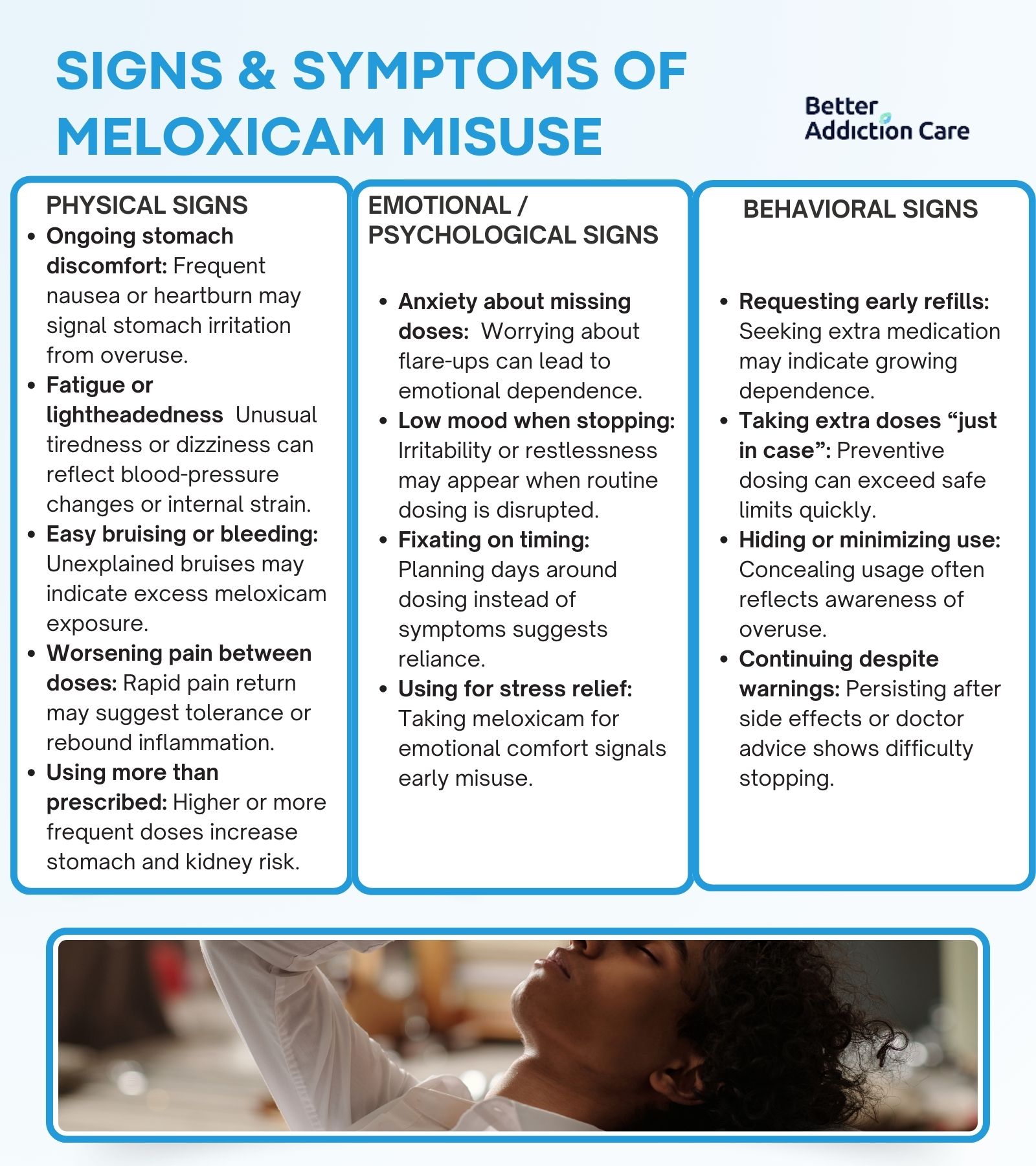
Meloxicam is a nonsteroidal anti-inflammatory drug (NSAID) that reduces inflammation and pain by inhibiting the enzymes cyclooxygenase-1 and -2 (COX-1/COX-2), which produce prostaglandins, inflammatory chemicals.
Unlike opioids, meloxicam does not trigger dopamine release in the brain’s prefrontal cortex or limbic reward circuits, which are responsible for addiction-forming reinforcement.
Meloxicam is a nonsteroidal anti-inflammatory drug (NSAID) that reduces inflammation and pain by inhibiting the enzymes cyclooxygenase-1 and -2 (COX-1/COX-2), which produce prostaglandins, inflammatory chemicals.
Unlike opioids, meloxicam does not trigger dopamine release in the brain’s prefrontal cortex or limbic reward circuits, which are responsible for addiction-forming reinforcement.
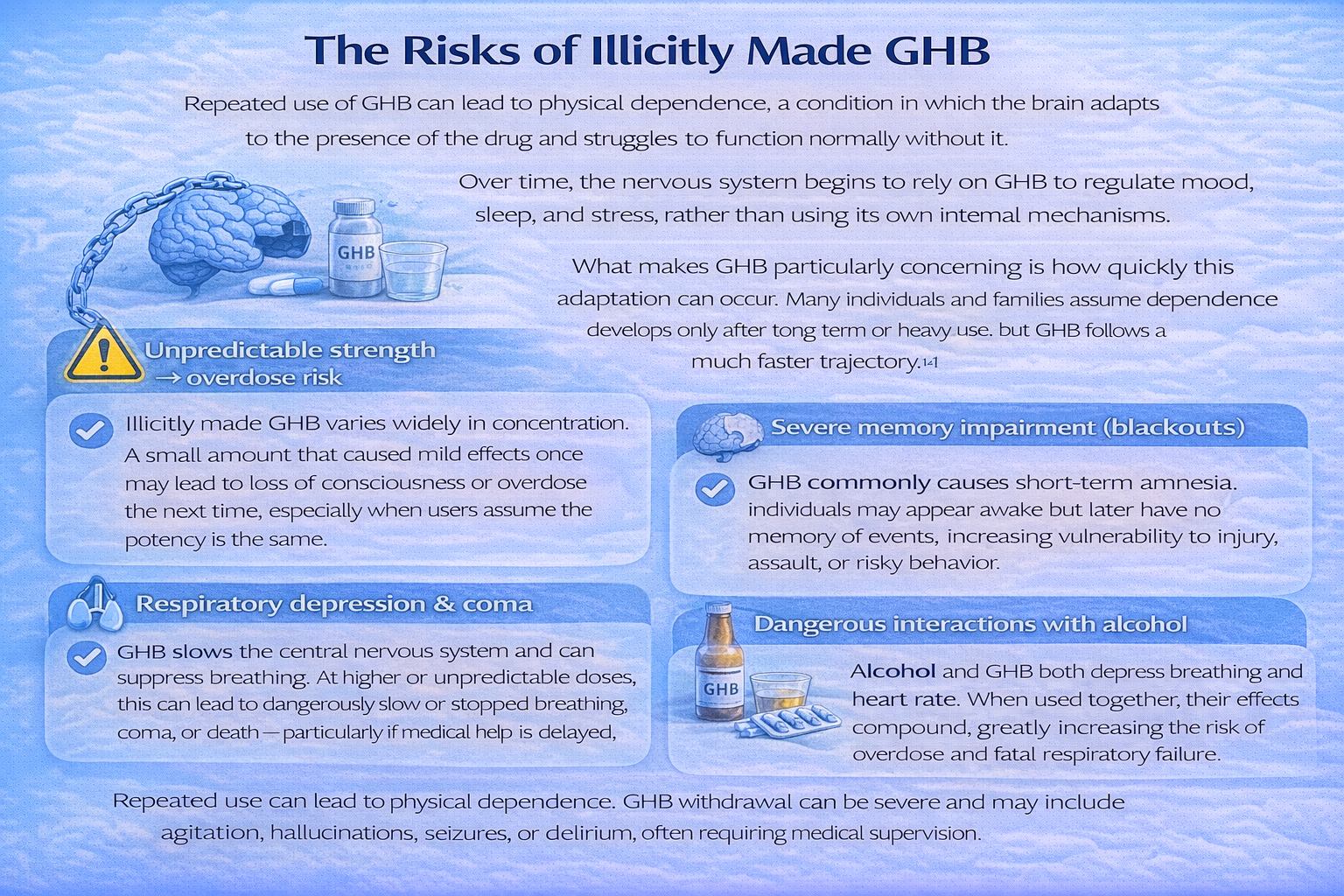 @esle
@esle

Illicit GHB manufacture carries serious health risks and legal consequences. Because illegal production is unregulated, the resulting substance is often unpredictable in strength, contaminated with toxic residues, and far more dangerous than pharmaceutical-grade alternatives.
Illicit GHB manufacture carries serious health risks and legal consequences. Because illegal production is unregulated, the resulting substance is often unpredictable in strength, contaminated with toxic residues, and far more dangerous than pharmaceutical-grade alternatives.
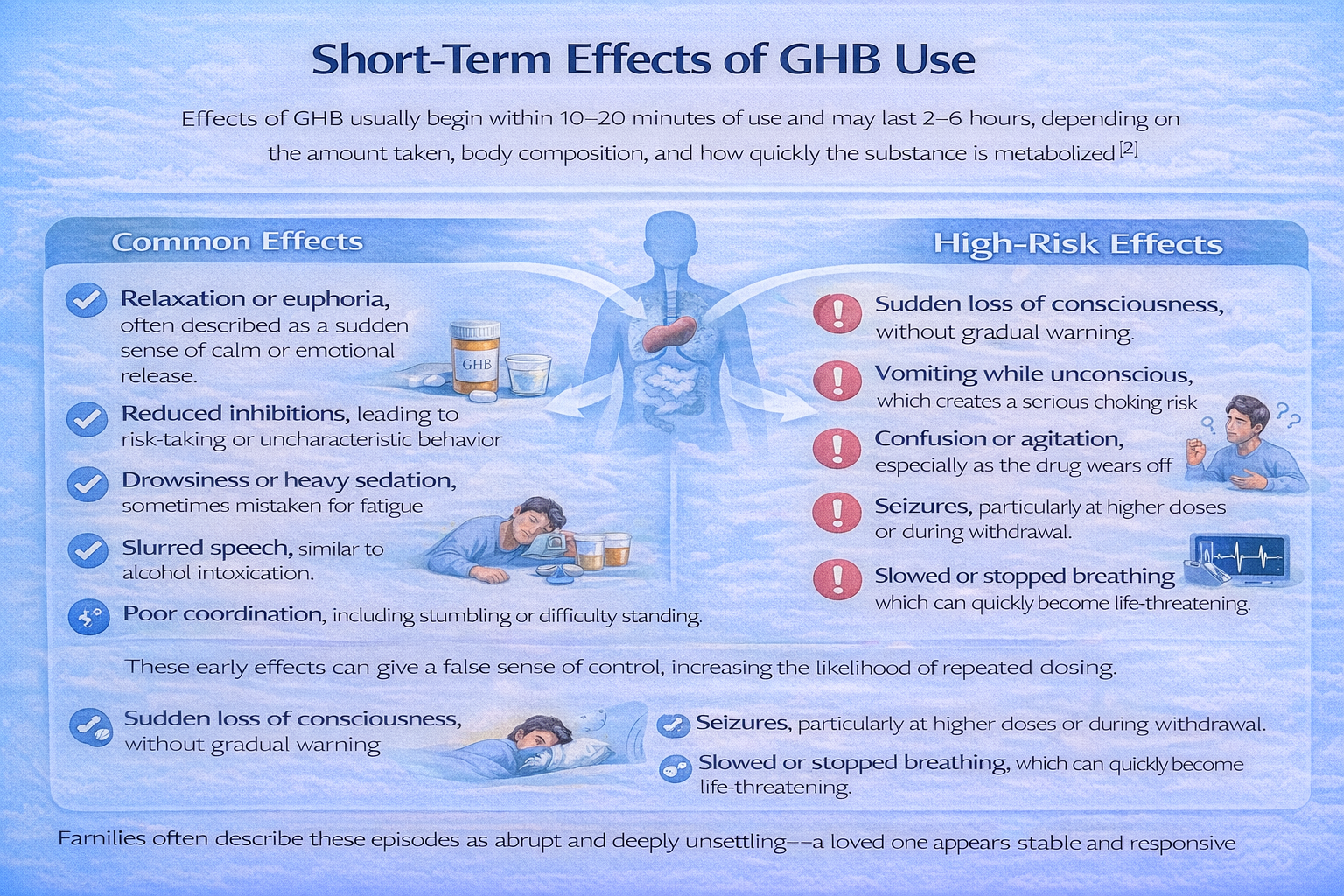
Gamma-hydroxybutyrate (GHB) is a substance most people encounter during moments of concern—not curiosity. People often search for information after unexplained blackouts, emergency room visits, or sudden personality changes.
Gamma-hydroxybutyrate (GHB) is a substance most people encounter during moments of concern—not curiosity. People often search for information after unexplained blackouts, emergency room visits, or sudden personality changes.
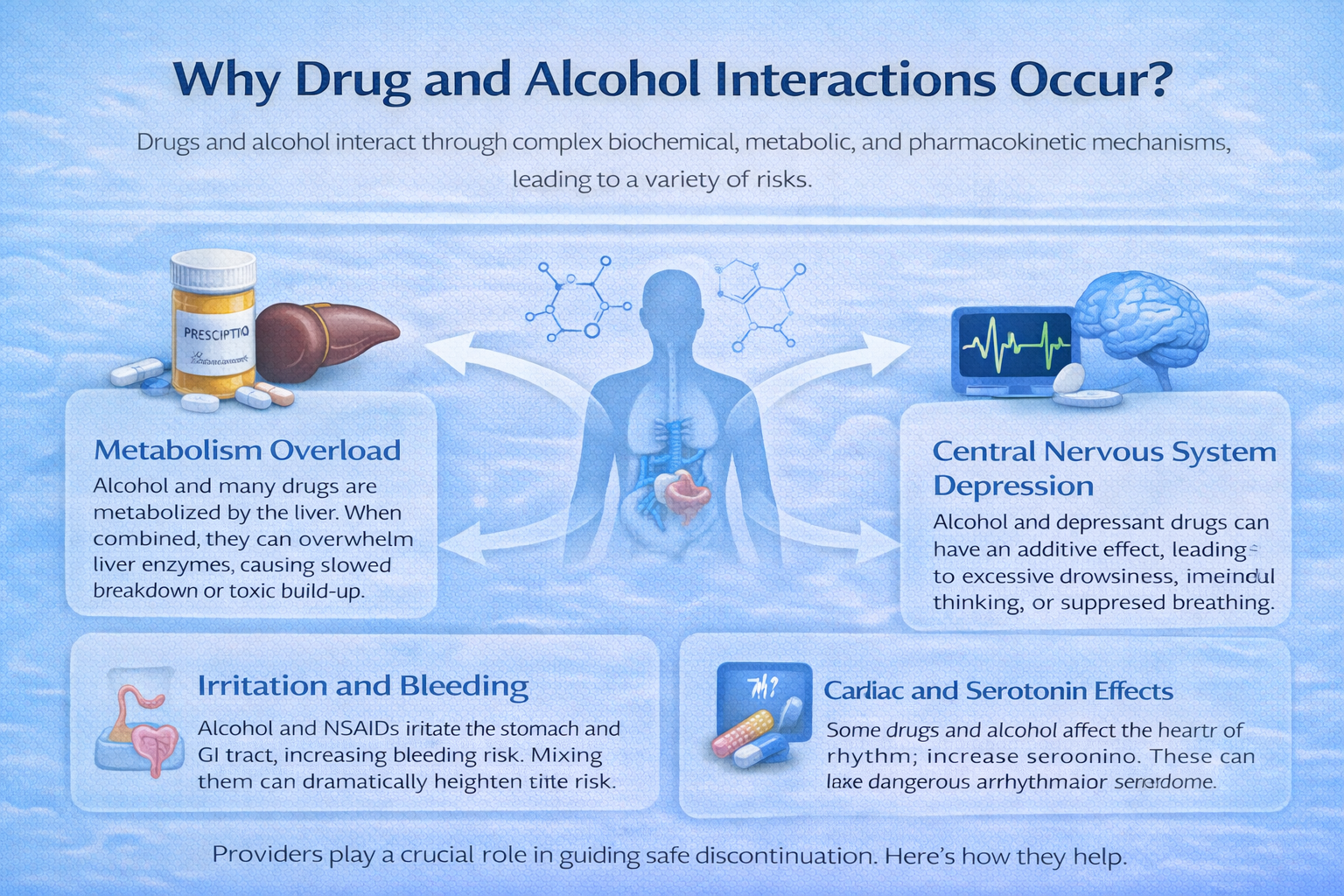 @esle
@esle

Drug and alcohol interactions occur when multiple substances affect overlapping systems in the body. With hydroxyzine, the primary concern is stacked sedation, where more than one substance slows brain and nervous system activity simultaneously.
Drug and alcohol interactions occur when multiple substances affect overlapping systems in the body. With hydroxyzine, the primary concern is stacked sedation, where more than one substance slows brain and nervous system activity simultaneously.
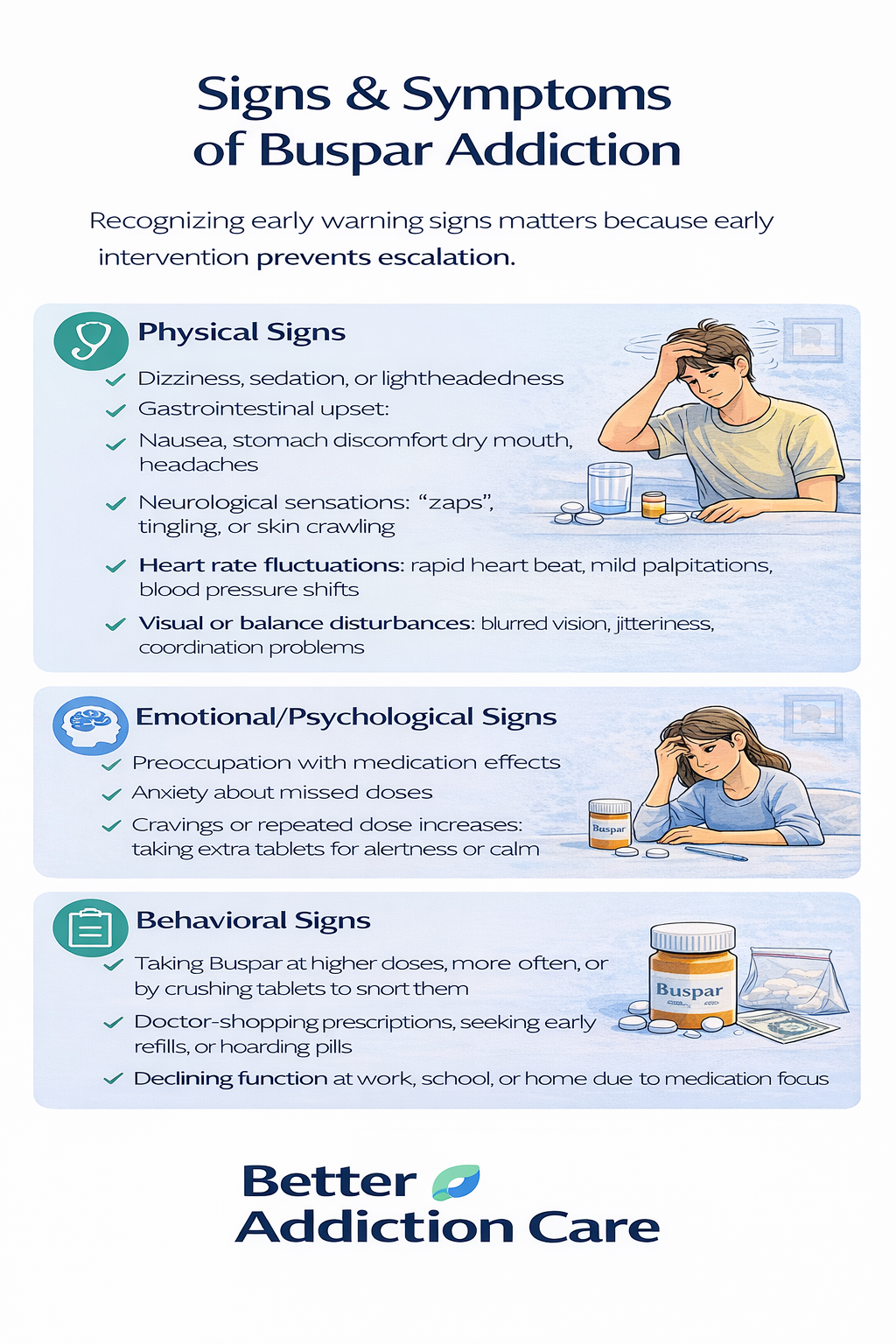
Buspar (buspirone) is an anxiolytic medication prescribed primarily for generalized anxiety disorder. It works differently from benzodiazepines and is not a controlled substance, but some people may still misuse it in an attempt to self-manage anxiety, boost mood, or enhance the effects of other medications.
Buspar (buspirone) is an anxiolytic medication prescribed primarily for generalized anxiety disorder. It works differently from benzodiazepines and is not a controlled substance, but some people may still misuse it in an attempt to self-manage anxiety, boost mood, or enhance the effects of other medications.
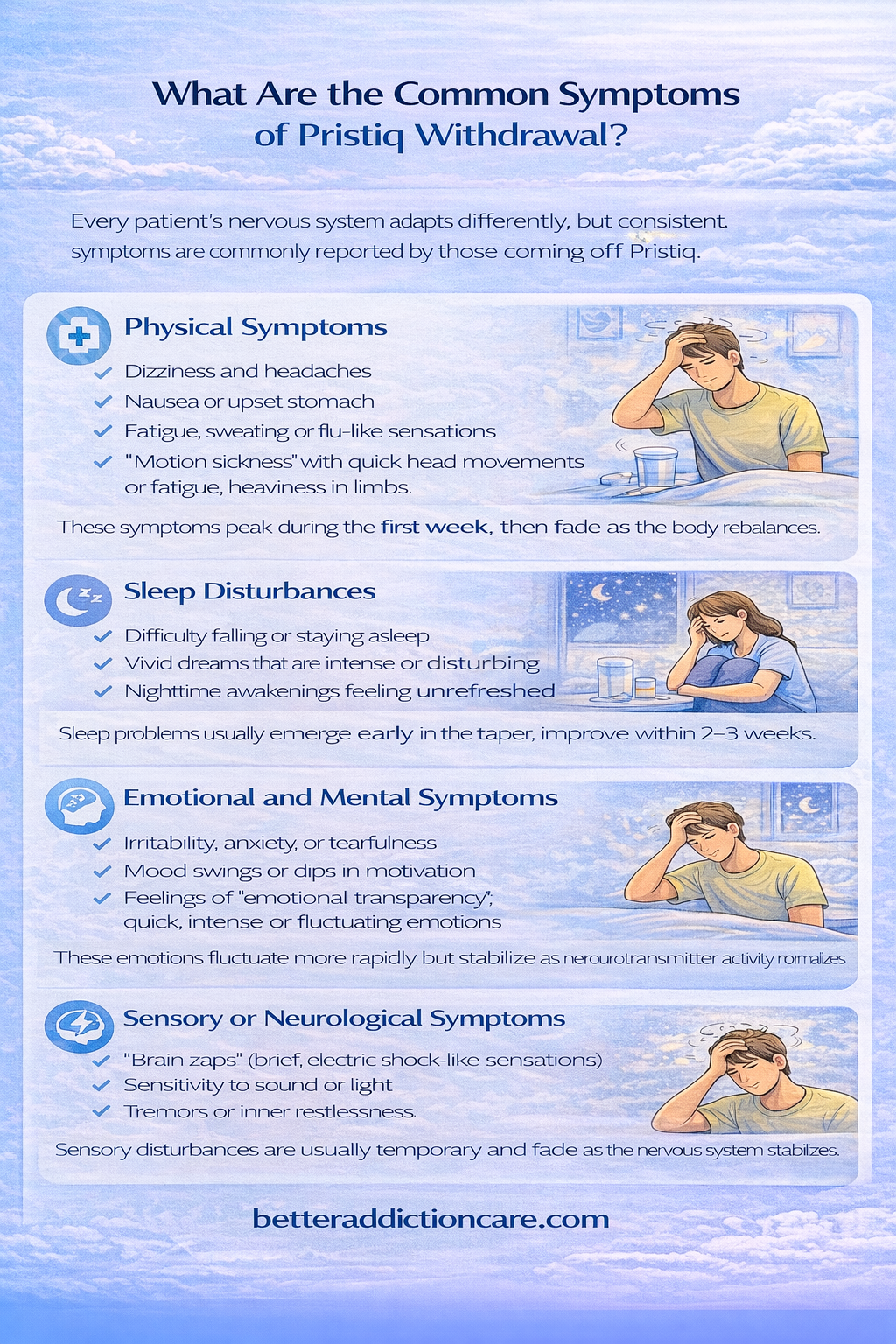 @esle
@esle

When Pristiq levels drop abruptly, serotonin and norepinephrine signaling changes suddenly, and the nervous system struggles to maintain balance. This internal shift can create physical sensations, mood changes, and sleep disruptions.
When Pristiq levels drop abruptly, serotonin and norepinephrine signaling changes suddenly, and the nervous system struggles to maintain balance. This internal shift can create physical sensations, mood changes, and sleep disruptions.
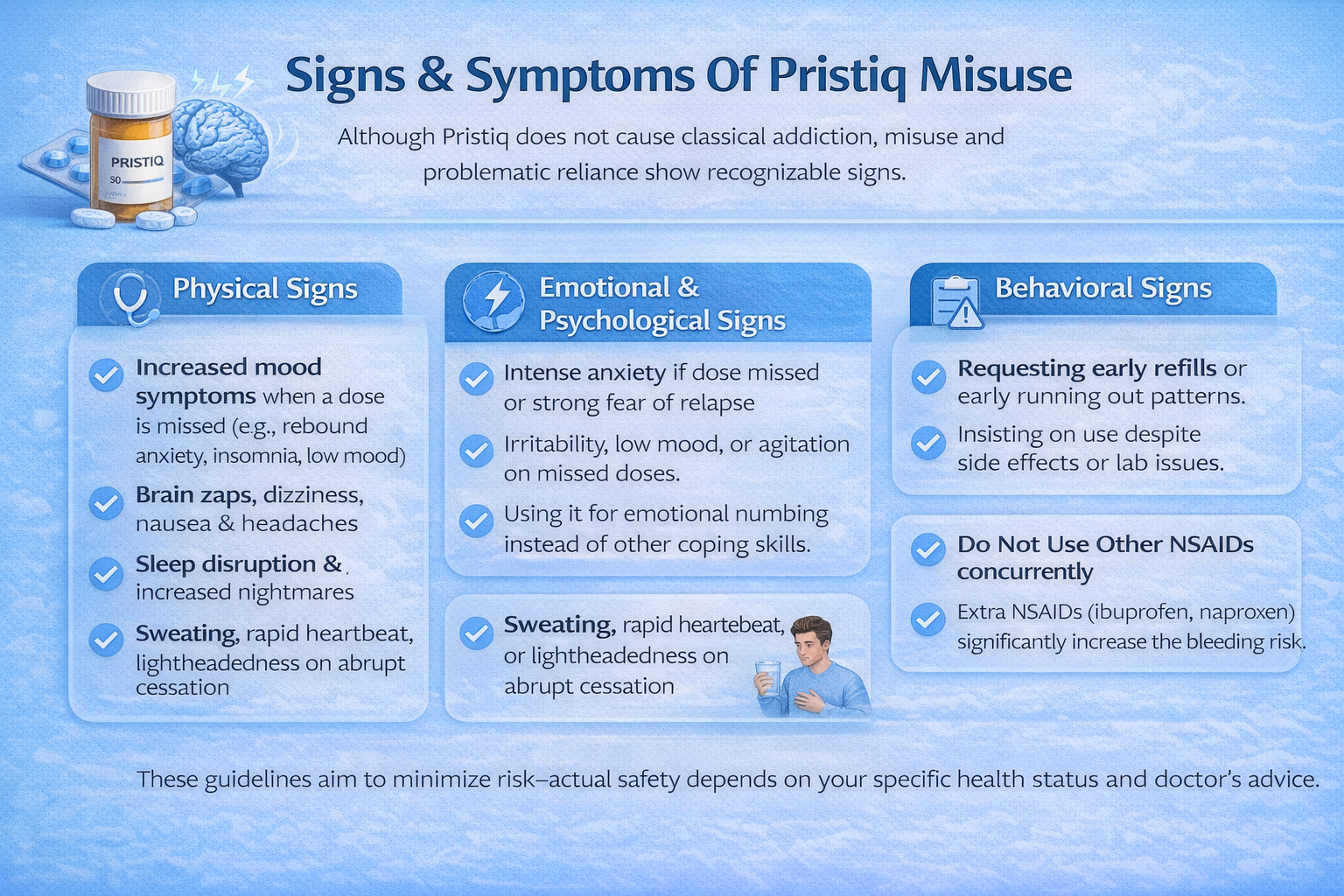
Many people first start Pristiq after a major depressive episode, a difficult postnatal period, or when anxiety and persistent low mood begin to interfere with daily life. It can feel like a lifeline: sleep stabilizes, thoughts quieten, and routines become manageable again.
Many people first start Pristiq after a major depressive episode, a difficult postnatal period, or when anxiety and persistent low mood begin to interfere with daily life. It can feel like a lifeline: sleep stabilizes, thoughts quieten, and routines become manageable again.
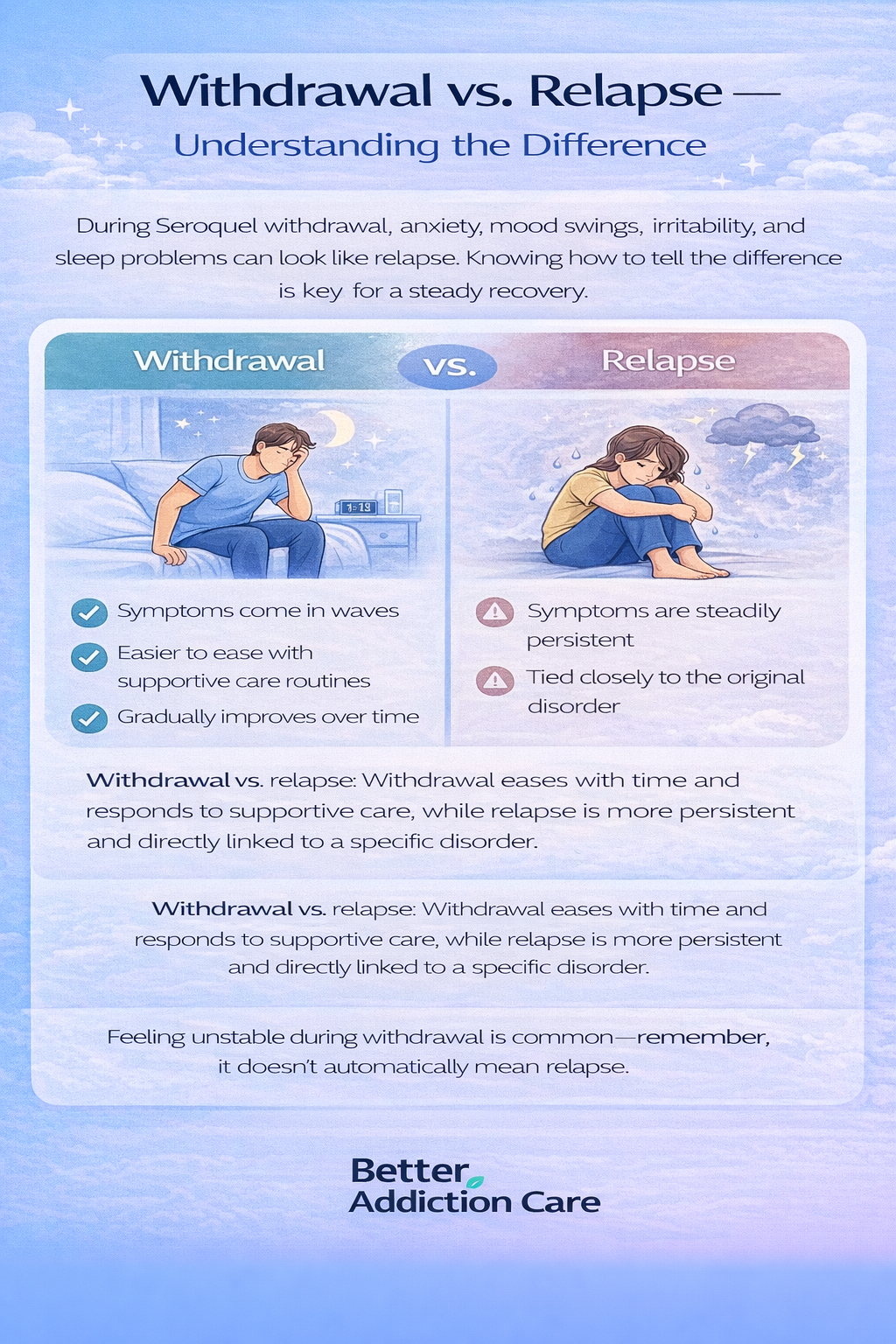 @esle
@esle

When Seroquel is stopped abruptly, the brain does not have enough time to readjust its neurotransmitter activity. The sudden gap between medication removal and neurochemical stability can lead to symptoms like anxiety, insomnia, agitation, and physical discomfort.
When Seroquel is stopped abruptly, the brain does not have enough time to readjust its neurotransmitter activity. The sudden gap between medication removal and neurochemical stability can lead to symptoms like anxiety, insomnia, agitation, and physical discomfort.
